Julius Jennings Hoffman was an American attorney and jurist who served as a United States district judge of the United States District Court for the Northern District of Illinois. He presided over the Chicago Seven trial.

Bruce Robert Jacob is a former Assistant Attorney General for the State of Florida during the early 1960s. He represented Louie L. Wainwright, the Director of the Florida Division of Corrections, in the Supreme Court case of Gideon v. Wainwright, decided in March 1963, regarding the right to counsel of indigent defendants in non-capital felony cases in state courts. The attorney representing the Petitioner, Clarence Gideon, was Abe Fortas, a Washington, D.C. lawyer who later became a Justice of the Supreme Court. The previous 1942 Supreme Court case of Betts v. Brady required the appointment of counsel for an indigent defendant at state expense if there was a “special circumstance” present in the case which made it necessary for counsel to be provided for the defendant to receive a fair trial. For example, if the defendant was indigent and was extremely young, or lacked education or experience, was unfamiliar with court procedures, or if the charges against him were complex, the trial court was required under the Due Process Clause of the Fourteenth Amendment to appoint counsel. Jacob argued against any extension of the defendant's right to counsel. The Court in Gideon overruled Betts and required state courts to appoint attorneys for defendants in all felony prosecutions.
Leo D. Stoller is an American self-styled "intellectual property entrepreneur" based in suburban Chicago, Illinois. Stoller claimed rights to a large inventory of well-known trademarks and engaged in the assertive enforcement of those alleged trademark rights, threatening infringement action against people and companies who attempt to use similar marks.
Cheek v. United States, 498 U.S. 192 (1991), was a United States Supreme Court case in which the Court reversed the conviction of John L. Cheek, a tax protester, for willful failure to file tax returns and tax evasion. The Court held that an actual good-faith belief that one is not violating the tax law, based on a misunderstanding caused by the complexity of the tax law, negates willfulness, even if that belief is irrational or unreasonable. The Court also ruled that an actual belief that the tax law is invalid or unconstitutional is not a good faith belief based on a misunderstanding caused by the complexity of the tax law, and is not a defense.
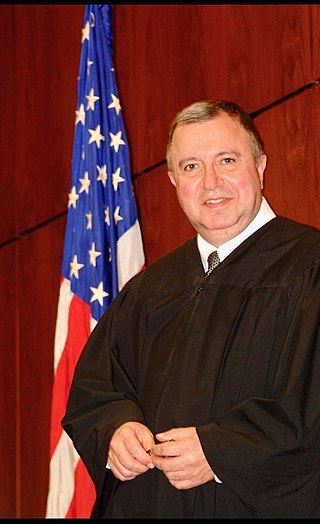
Samuel Der-Yeghiayan is a former United States District Court Judge of the Northern District of Illinois. He was appointed in 2003. Der-Yeghiayan is noteworthy as being the first Armenian immigrant U.S. District Court Judge in the United States and served over 40 years of distinguished government service.
Henry Warren Goddard was a United States district judge of the United States District Court for the Southern District of New York.

Herbert Jay Stern is a trial lawyer, with a national practice in civil and criminal litigation, as well as mediation and arbitration. Earlier in his career, Stern served as a United States district judge of the United States District Court for the District of New Jersey and as the United States Judge for Berlin.
Pro se legal representation comes from Latin pro se, meaning "for oneself" or "on behalf of themselves" which, in modern law, means to argue on one's own behalf in a legal proceeding, as a defendant or plaintiff in civil cases, or a defendant in criminal cases, rather than have representation from counsel or an attorney.
David Ormon Carter is a United States district judge of the United States District Court for the Central District of California.
Denise Louise Cote is a senior United States district judge of the United States District Court for the Southern District of New York.

Kevin Thomas Duffy was an American lawyer and United States district judge of the United States District Court for the Southern District of New York.
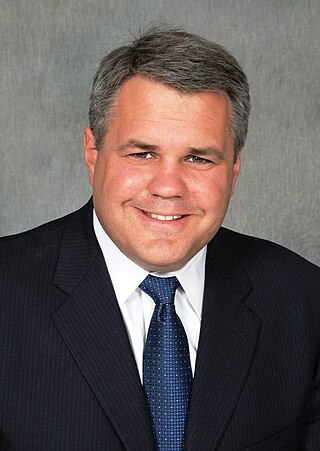
Mark Robert Filip is an American lawyer specializing in class action and white collar criminal and regulatory defense. Formerly a partner at Skadden, Arps, he currently practices in the Washington, D.C. office of Kirkland and Ellis. From 2004 until 2008, Filip served as a United States district judge of the United States District Court for the Northern District of Illinois. As the George W. Bush administration ended, Filip served as Deputy Attorney General of the United States, and as the Barack Obama administration began he briefly served as acting attorney general.
A citizen's right to a trial by jury is a central feature of the United States Constitution. It is considered a fundamental principle of the American legal system.
Thomas J. Maloney (1925–2008) was a judge in Cook County, Illinois who served from 1977 until his indictment for bribery in 1991. Since 1981, the court was being investigated by the FBI in Operation Greylord, and he was eventually convicted on four counts of accepting bribes. He served 12 years of a 15-year prison term from 1994 to 2007.
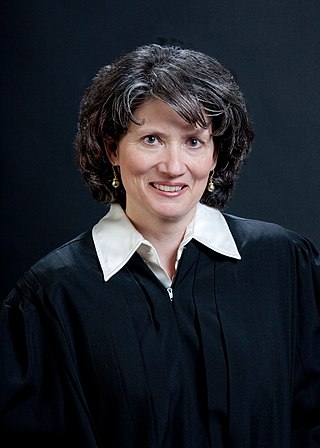
Maria Yvonne Gonzalez Rogers is an American lawyer serving as a United States district judge of the United States District Court for the Northern District of California. She was previously a California state court judge on the Alameda County Superior Court from 2008 to 2011.
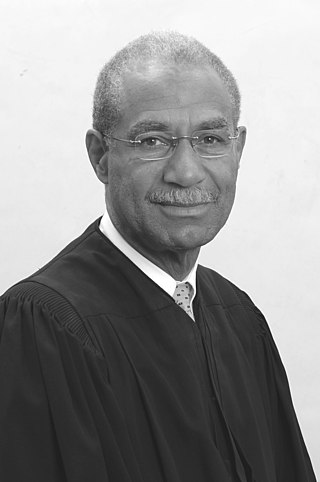
Gershwin Allen Drain is a senior United States district judge of the United States District Court for the Eastern District of Michigan.

Richard Kling is a Clinical Professor of Law at the Chicago–Kent College of Law in Chicago, Illinois, where he has been teaching since 1981. He teaches evidence, forensic science, and professional responsibility. He has personally tried over 500 jury trials, including 28 capital cases, and currently has a full-time Clinical Criminal practice through the Law Offices of the Chicago-Kent College of Law. Richard Kling is well respected in the Chicago legal community and is regularly featured in Chicago local news to discuss legal news topics ranging from the Rod Blagojevich corruption charges to the Drew Peterson murder trial.
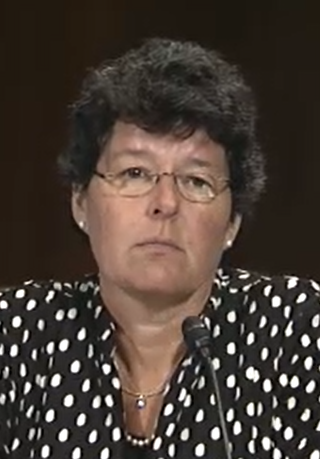
Allison Dale Burroughs is a United States district judge of the United States District Court for the District of Massachusetts.

James Wesley Hendrix is a United States district judge of the United States District Court for the Northern District of Texas and former assistant United States attorney for the same district. He presides over the Northern District's Lubbock, Abilene, and San Angelo Divisions, which account for 47 of the Northern District's 100 counties, and span an area larger than Pennsylvania.
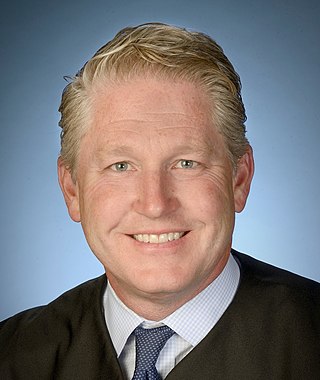
Carl John Nichols is a United States district judge of the United States District Court for the District of Columbia and a judge of the United States Foreign Intelligence Surveillance Court











